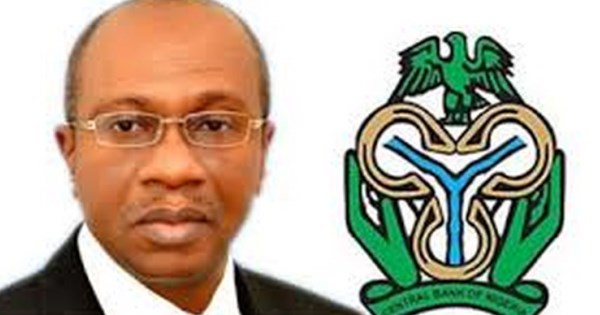E-Financial
CBN Sets N1m as Application Fee for PSHCs Licence

Central Bank of Nigeria (CBN) released guidelines for the establishment and regulation of payments service holding companies (PSHCs) in Nigeria.

Musa Jimoh, CBN’s director of payments system management department, announced this in a circular on Tuesday.
The guideline requires companies that intend to offer both switching and processing, and mobile money services to set up a PSHC structure.
“This arrangement would prevent commingling of activities, facilitate management of risks and enable the Central Bank of Nigeria exercise adequate regulatory oversight on all the companies operating within the Group (PSHC),” the circular reads.
CBN said promoters of a PSHC shall be required to submit a formal application for the grant of a licence.
However, it said the application process will be in two phases: approval-in-principle (AIP) and a final licence.
According to the guideline, the capital requirement to apply for an AIP is “a non-refundable application fee of N1,000,000.00 (One Million Naira only) or such other amount that the CBN may specify from time to time; payable to the Central Bank of Nigeria, through electronic transfer.
“Not later than six (6) months after obtaining the AIP, the promoters of a proposed PSHC shall submit an application to the CBN for the grant of a final licence.
“The application shall be accompanied with non-refundable licensing fee of N5,000,000.00 (Five Million Naira only), or such other amount that the CBN may specify from time to time, payable to the Central Bank of Nigeria by electronic transfer”.
The apex bank explained that a PSHC will be set up for the purposes of making and managing equity investment in two or more companies being its subsidiaries, which are payments service providers across three categories: mobile money operations, switching and processing, and payment solution services.
“PSHC shall be non-operating, existing solely to carry out investment in approved subsidiaries without engaging in the day-to-day management and operations of subsidiaries.
“It shall have a board size of between 5 and 10 or as determined by applicable CBN Corporate Governance Guidelines.”
CBN added that no PSHC is allowed to borrow from the Nigerian banking system for the purpose of capitalising itself or any of its subsidiaries.
E-Financial
Sterling Bank Pledges ₦2bn to Fully Fund University Scholarships

Sterling Bank has launched a ₦2 billion scholarship initiative to support Nigerian students in private universities. The program, Beyond Education, was unveiled on Democracy Day and aims to remove financial barriers to higher learning.

The bank will fully sponsor 600 students from across Nigeria’s 36 states and the FCT to study Technology, Finance, Sales, and Public Health at Miva University, founded by Sim Shagaya. The selection process is merit-based, with candidates nominated by themselves or others, and final selection determined through public voting open to Sterling account holders.
Sterling Bank’s CEO, Abubakar Suleiman, described the initiative as an investment in Nigeria’s future, aligning with the bank’s commitment to Health, Education, Agriculture, Renewable Energy, and Transportation. The bank has already deployed over half a trillion naira in financing across these sectors.
According to Obinna Ukachukwu, Growth Executive at Sterling Bank, the program is about creating opportunities beyond education. The bank is shifting from short-term philanthropy to long-term ecosystem development, with investments in digitized healthcare, school financing, agricultural cooperatives, solar energy, and transport systems.
“Nigeria’s progress requires action,” Suleiman said. “We are funding the future architects of the country—those who will build the businesses, institutions, and innovations needed for national prosperity.”
Nominations for the Beyond Education scholarships are now open at www.sterling.ng/FUTURE. The initiative sets a precedent for private-sector-driven education investment, where success is measured not just in profit, but in people empowered.
E-Financial
FG to Train 100,000 Youths Annually in Forex Trading and Financial Skills

Federal Government of Nigeria has signed a Memorandum of Understanding (MoU) with Investonaire Academy to train 100,000 young Nigerians annually in forex trading, financial planning, and risk management.

The agreement, signed in Abuja, was announced by Omolara Esan, Director of Information and Public Relations at the Federal Ministry of Youth Development. According to her, the initiative is part of the government’s broader strategy to reduce youth unemployment and enhance financial inclusion.
At the signing ceremony, Minister of Youth Development, Comrade Ayodele Olawande, described the partnership as a milestone in the ministry’s efforts to equip young Nigerians with practical financial skills. He emphasized that the programme would foster critical thinking, improve digital literacy, and expand access to global economic opportunities.
Speaking on the collaboration, Dr. Enefola Odiba, International Programme Director at Investonaire Academy, highlighted the importance of empowering youth with relevant financial and digital skills. He described young people as essential drivers of innovation and national development.
The ministry assured that the programme would be implemented with transparency and measurable outcomes, ensuring that participants gain practical expertise in forex trading and financial planning.
The Federal Government has recently intensified efforts to boost skill development across various sectors. A separate plan aims to train 100,000 artisans nationwide, following the successful upskilling of 29,000 individuals in previous phases. This initiative seeks to professionalize vocational trades, eliminate quackery, and introduce licensing systems.
Additionally, technicians from specialized institutions will receive industry-standard training to strengthen Nigeria’s labor force and increase self-reliance in skilled professions.
Through these efforts, the government hopes to position Nigerian youth for economic success both locally and globally.
E-Financial
NDIC Begins Final Settlements to Creditors of Liquidated Premier Bank

Nigeria Deposit Insurance Corporation (NDIC) has begun the final phase of liquidation for the defunct Premier Commercial Bank, initiating the payment of liquidation dividends to verified creditors, nearly 25 years after the bank’s closure.

Premier Commercial Bank had its operating license revoked by the Central Bank of Nigeria (CBN) on December 20, 2000, following findings of financial instability and regulatory non-compliance.
Since then, the NDIC has overseen the bank’s liquidation process under a winding-up order from the Federal High Court, which designated the corporation as the official liquidator.
In a public announcement, the NDIC invited all eligible creditors to visit any of its zonal offices between June 2 and June 27, 2025, to verify and claim their entitlements.
This move marks a critical milestone in the final settlement of claims related to the bank’s collapse.
To facilitate the verification process, creditors are required to present proof of deposit or shareholding, such as a passbook, chequebook, term deposit certificate, or bank statement.
Additionally, valid identification documents must be submitted, including a driver’s license, international passport, national identity card, NIN slip/card, voter’s card, or a formal identification letter from a traditional ruler or local government chairman.
The NDIC assured the public that the ongoing settlement is part of a broader effort to bring closure to longstanding claims resulting from Premier Commercial Bank’s liquidation. The process, according to the corporation, has been designed to ensure efficient disbursement to all verified stakeholders.
Premier Commercial Bank is one of 53 deposit money banks whose licenses were revoked by the CBN between 1994 and 2018 due to various violations and signs of financial distress.
These closures were followed by legal procedures appointing the NDIC to manage asset recoveries and creditor settlements.
By initiating this final phase of payment, the NDIC is reaffirming its commitment to financial system stability and depositor protection while calling on all affected individuals and institutions to complete verification processes promptly to receive their due compensation.

 General News2 days ago
General News2 days agoAfDB to Provide $184.1mfor Africa’s Largest Solar Energy, Battery Storage Project

 News2 days ago
News2 days agoReport Reveals New Malware Posing as an AI Assistant Steals User Data

 Telecom3 days ago
Telecom3 days agongCERT Issues High Alert to Nigerians Using Android Phones

 Telecom3 days ago
Telecom3 days agoMTN and Ecobank Launch Chess Championship to Empower Nigeria’s Youth

 General News2 days ago
General News2 days agoCourt Declines Access Bank’s Request to Freeze MTNN Account over N180Bn Claims

 General News3 days ago
General News3 days agoOSGOF, NASRDA Partner to Boost Geospatial Data, Others

 Telecom2 days ago
Telecom2 days agoMTN Mulls Establishment of Fintech Firm in Nigeria, Others

 E-Business3 days ago
E-Business3 days agoAfrican Startups Raised $345m in Funding in May























